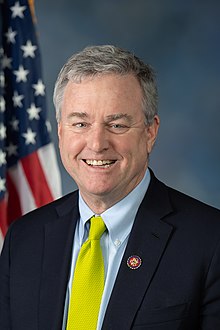
Rep. Trone says he’s been working on that issue for some time.
Washington DC. (KM) – During his State of the Union Address on Tuesday, President Joe Biden spoke about a unity agenda which are measures that are considered bipartisan in nature; and one of them was the opioid crisis. “It gives us additional fuel and ammunition to keep moving forward with all the bipartisan bills we have in the House, a number which are now over tin the Senate also,”: said 6th District Representative David Trone (D).
He says he’s been working on this issue for years. One way is by co-chairing a bipartisan Commission on Combating Synthetic Opioid Trafficking. The panel released a report outlining some steps to take to end this epidemic. “And we want to elevate the head of the Office of National Drug Control Policy to the cabinet,” says Trone. “That job was in the cabinet in 1993. {President George HW} Bush put it in the cabinet, and it was taken out in ’08.”
Many of the opioids and other illegal drugs coming across the US southern border come from Mexican cartels. The report recommends the Mexican Government take on the cartels. Trone says the government there isn’t willing to do it. “And they’re trying to work around the cartels, build their economy independently and that means we can’t stop the flow of drugs,” he says. “So the only to stop it–and Republicans and Democrats and all agree–is we got to stop demand,” Trone says.
The report, says Trone, also addresses treatment for those with addictions. He says that also means removing barriers to medically assisted treatments. “You’ve got to work on connecting treatment. And a lot of that medically assisted treatment, and removing all those medically assisted treatment,” he said.
“Another area is harm reduction, and the importance of NARCAN, and how we have got to get NARCAN literally everywhere to our first responders throughout our community,” Trone continues. “NARCAN saves lives until someone’s ready to look for treatment.”
After treatment, where a person lives is just as important. “Once they’re in treatment and they come out, we’ve got to get recovery housing,” says Trone. “We have another bill that I hope I can get through the Senate and the House on recovery housing. And that’s really going to give folks a chance to set standards on what that recovery housing can look like.”
Trone says he’s taken an interest in the opioid crisis after his nephew, Ian, lost his life to a fentanyl overdose.
By Kevin McManus